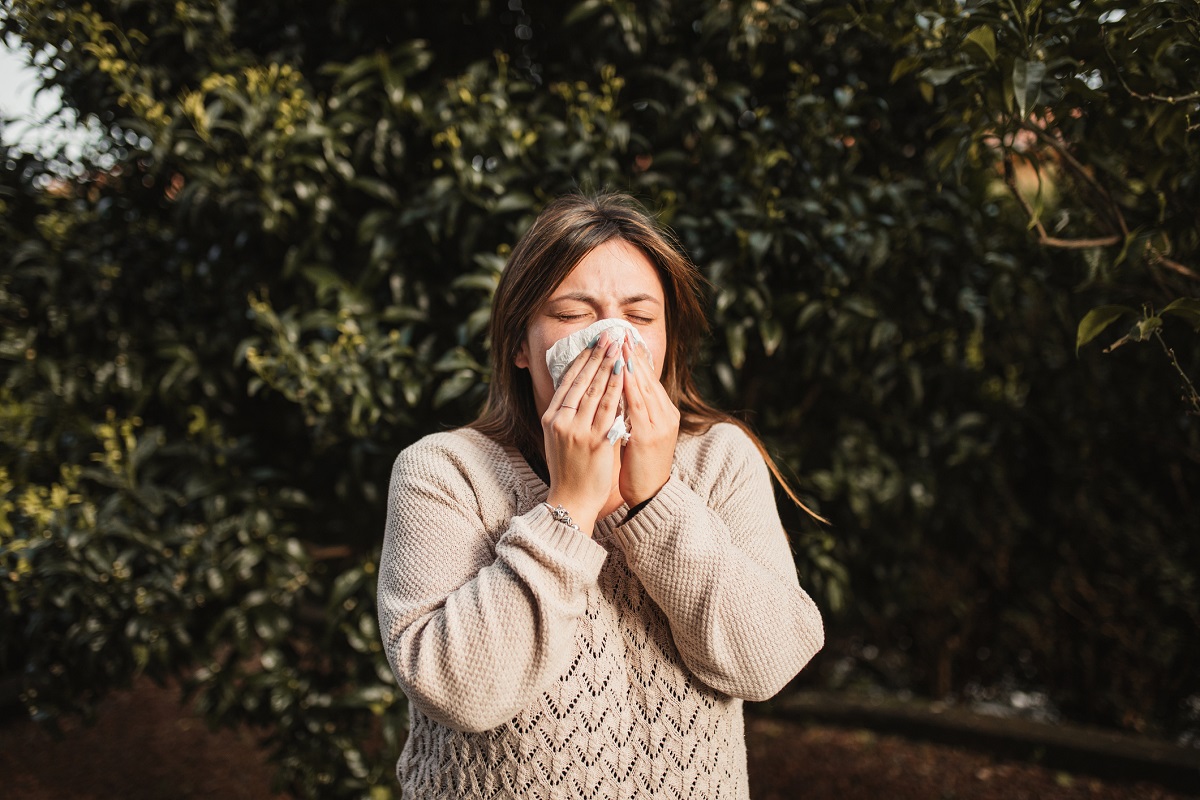The Medical Minute: How to alleviate the symptoms of seasonal allergies

Welcoming spring this year has been bittersweet for the millions of allergy sufferers already experiencing itchy eyes, nasal congestion, sneezing and runny noses.
What causes someone to be allergic to seasonal allergens and other irritants is unknown. The key to understanding allergies may lie in genetic and environmental triggers as well as a person’s lifestyle.
According to Dr. Timothy Craig, director of allergy, immunology and respiratory clinical research at Penn State Health Milton S. Hershey Medical Center, many variables can cause a person to be predisposed to allergies.
“It’s not like some diseases that are just based on one gene,” Craig said. “It’s definitely multiple genes combined with the environment exposures.”
Family history of allergies, atopic dermatitis and asthma can predispose people to suffer from allergies. A person’s overall health can contribute to susceptibility as well, as does lack of exercise, obesity and poor diet.
Environmental concerns like early exposure to second-hand smoke and air pollution can make a person vulnerable to allergies. Spending too much time indoors, not being exposed to pets and other animals early in life and not being exposed to enough bacteria and viruses can also increase risk of developing allergies.
The hygiene hypothesis, as it is known ― being too clean and compromising the adequate development of your immune system ― increases susceptibility to allergies because a person has not built up a tolerance to antigens and instead becomes allergic to them, Craig said.
“Predisposition combined with westernized changes in living and diet and overuse of antibiotics is what probably helps determine our chances of acquiring allergies,” he said. Diet, exercise and exposures all help develop the bacteria that colonize someone’s skin, airway and gastrointestinal track. This colonization is referred to as a microbiome, and certain microbiomes predispose someone to developing allergies.
When exposed to an irritant like tree pollen, a sensitized person’s mast cells ― part of the immune system and located throughout the body ― rapidly release histamine in defense. Histamine is a chemical response to the allergen and is what causes allergy symptoms. Other chemicals released from the mast cells also atract inflammatory cells called eosinophils which over hours to days can worsen symptoms.
Some people eventually build up a tolerance when exposed to an allergen on a regular basis. If the allergen is removed, a person can become hypersensitive when they come in contact with it again. This is often seen when students who are allergic to cats and have a cat in the home leave to attend college, then return to the home and develop severe symptoms.
The most common allergen this time of year is tree pollen. This year, the trees are expected to bloom rather quickly with the rapid acceleration of temperature causing excessive amounts of pollen. Following tree season, grasses are also expected to bloom early this year.
To combat and lessen seasonal allergy symptoms:
- Shower at the end of the day to remove pollen from your hair and body.
- Wash your clothing that you wore outside before re-wearing them.
- Rinse your nose with saline before bed to remove debris.
- Over-the-counter topical nasal steroids work very well but need to be used regularly for best results.
- Low-sedating antihistamines also work well, but are not as good as nasal steroids
- Antihistamine eye drops, again over-the-counter, work very well.
Finally, if all else fails see your doctor. Skin testing can help determine what you are allergic to and hopefully what to avoid. Desensitization by allergy shots or by oral desensitization is very effective at controlling allergies.
Craig also advises that eating properly and getting enough sleep can help fight the results of allergies that cause fatigue or ill feelings. He also advises to exercise regularly. While that may sound strange, there have been studies showing that physical activity can decrease allergic symptoms. It is also best to avoid outdoor activity in the late afternoon when winds usually pick up and disperse more pollen.
Related content:
- The Medical Minute: Easing the itch of poison ivy and poison oak
- The Medical Minute: Asthma differences in adults and children
The Medical Minute is a weekly health news feature produced by Penn State Health. Articles feature the expertise of faculty, physicians and staff, and are designed to offer timely, relevant health information of interest to a broad audience.
If you're having trouble accessing this content, or would like it in another format, please email Penn State Health Marketing & Communications.
